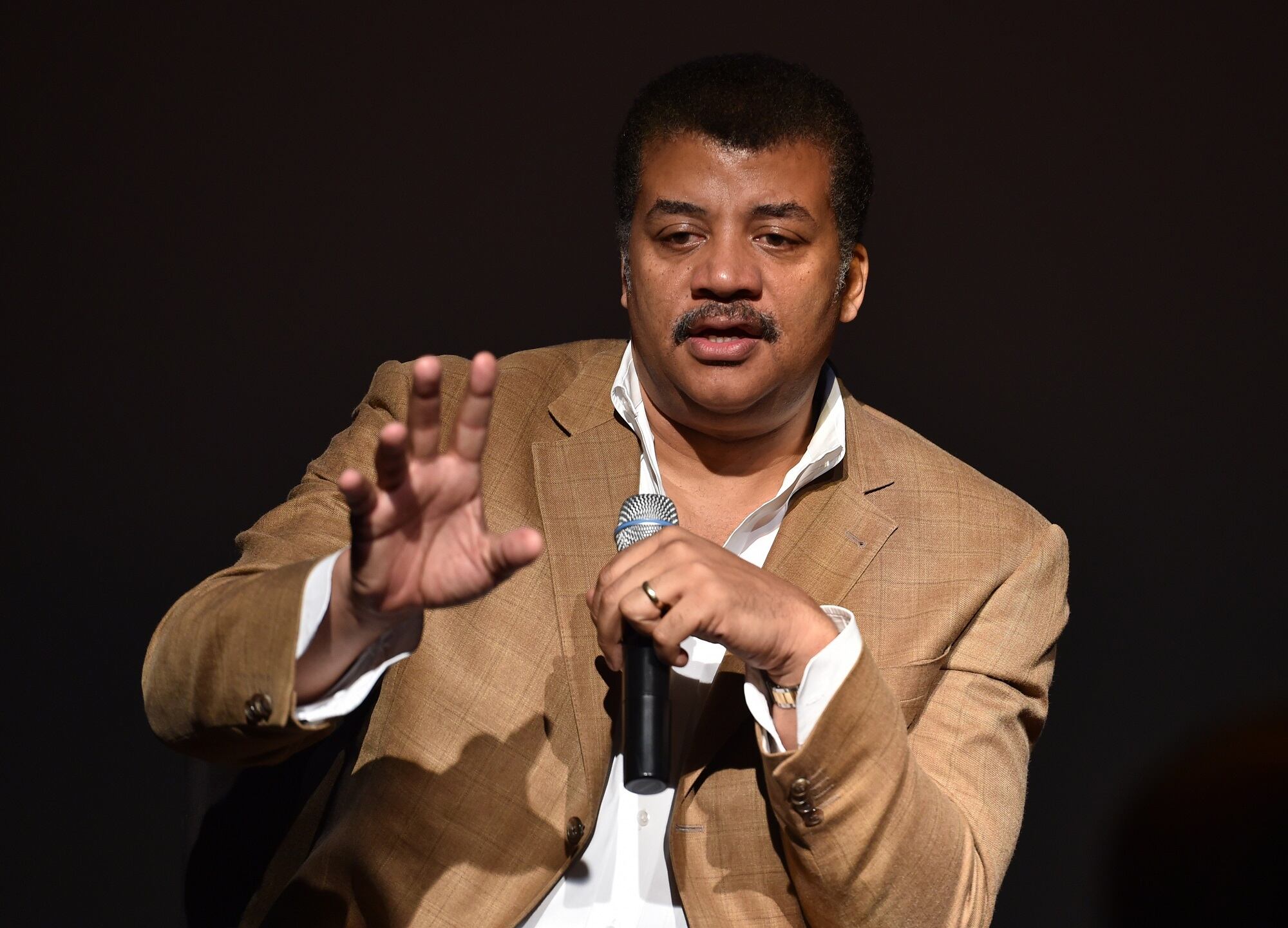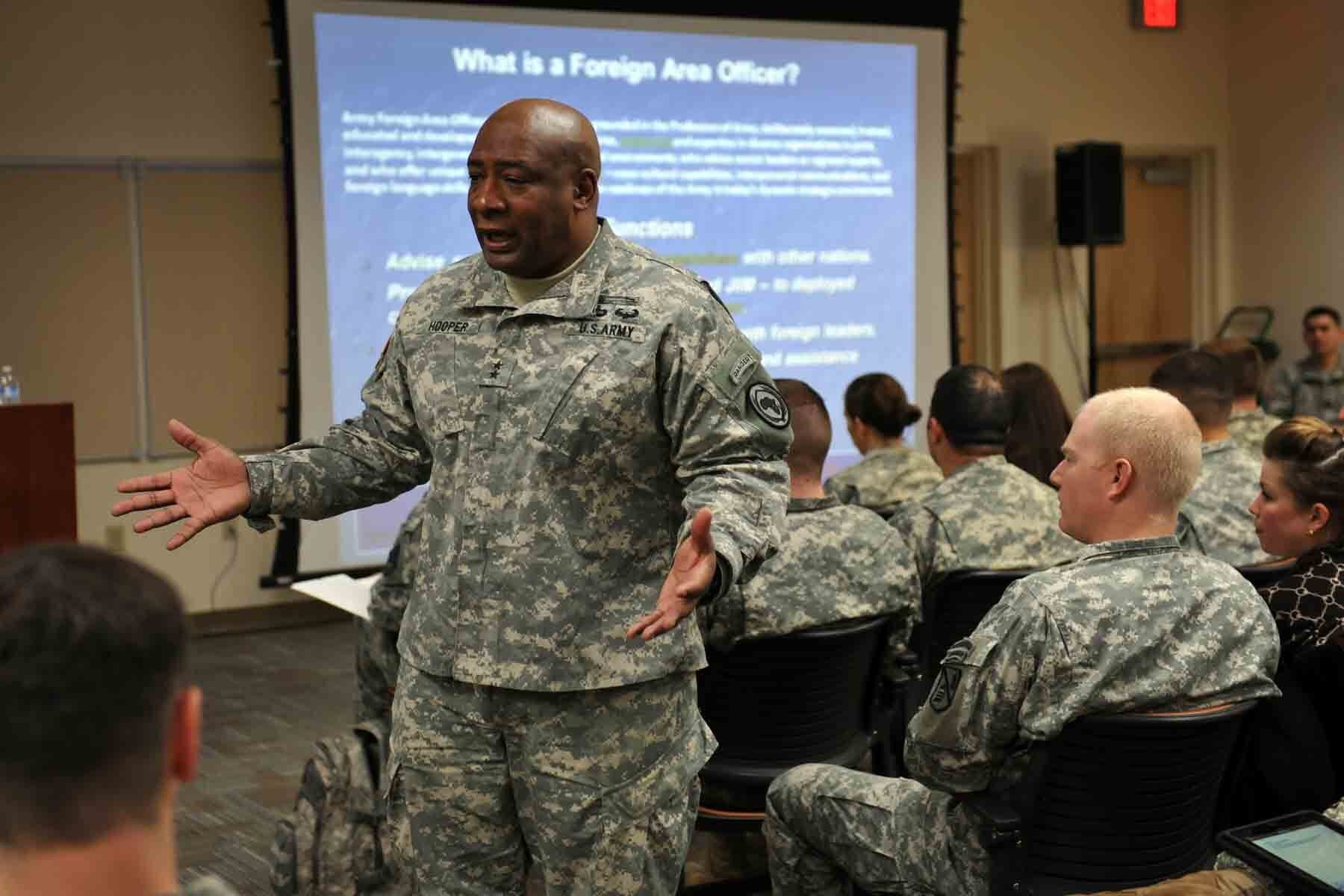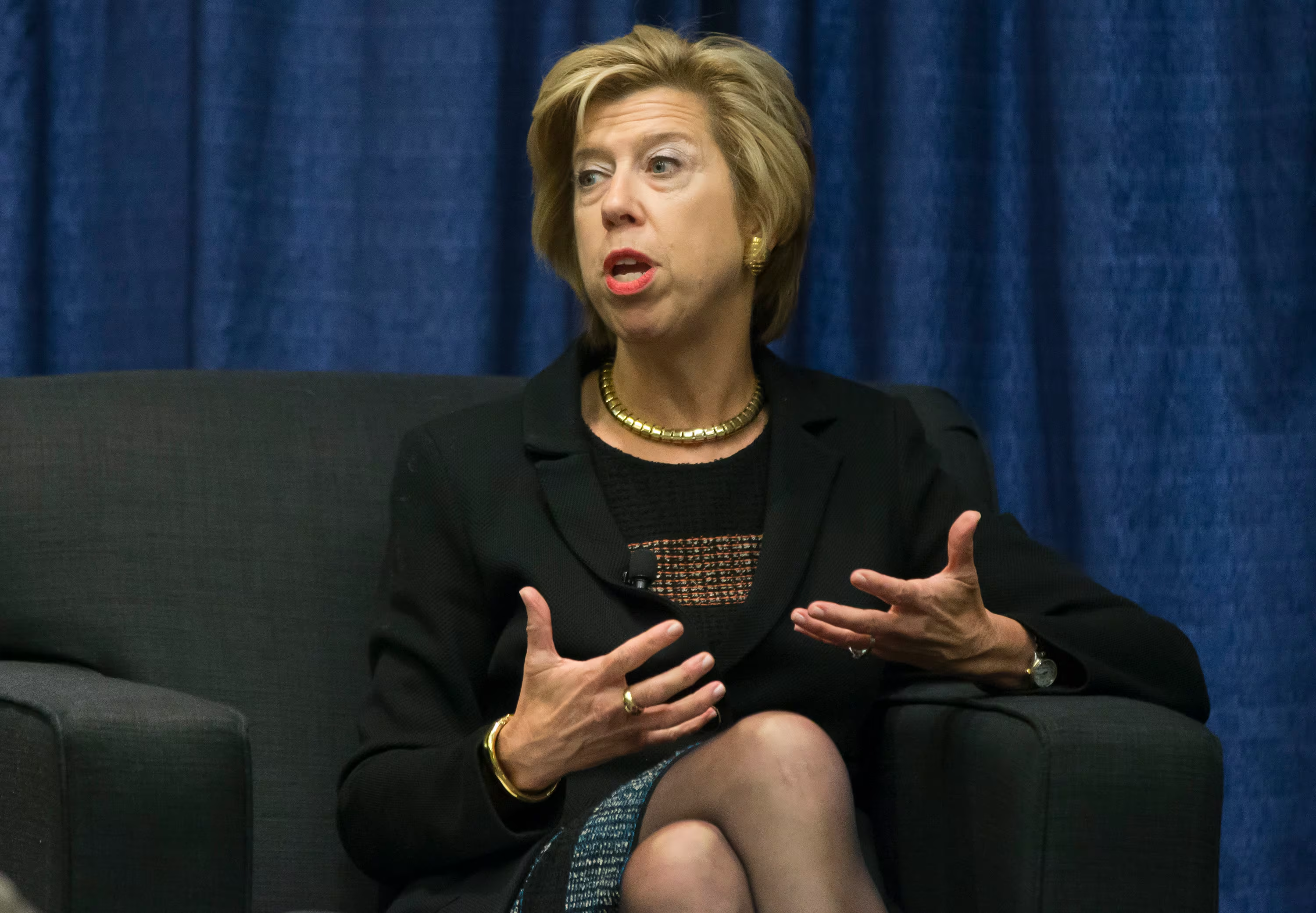WASHINGTON — The final undersecretary of defense for acquisition, technology and logistics plans to prioritize development of the civilian workforce, including increasing movement opportunities inside the department.
Ellen Lord, speaking to reporters Nov. 7, also threw some cold water on the idea of standing up a new educational facility for defense security cooperation issues.
Lord, who has been in office for about two months, seems to have zoned in on a particular issue of workforce management – the lack of movement for civilian workers throughout the AT&L systems.
The idea is based on her experiences in the defense industry, which she called “extremely proactive with our high-potential talent.” There, potential bright minds are given many opportunities to round off experiences and develop capabilities.
“Move people around, move people in and out, and that just works, because perspective you don’t gain overnight and perspective you don’t gain from being in the same environment,” Lord explained.
“The military does an incredible job of taking their human capital and cycling people through different positions for different experiences, giving them perspective,” Lord continued. “The department has not spent the same amount of time on the civilian workforce, and that’s something we’re looking at, everything from job assignments to how we structure” the Defense Acquisition University, or DAU.
It is true the military moves individuals around with regularity, but while Lord views that as a plus, others have warned it hinders the growth of expertise in certain fields.
Last month, the Defense Innovation Board, a group of technology experts brought together to advise the Pentagon, suggested that the department create a new career field for tech-heavy roles — specifically to combat the movement of people around the military.
RELATED

Eric Schmidt, the head of Google’s parent company Alphabet, seemed particularly frustrated by the movement of expertise around: “Where is the logic where you take expertly trained cybersecurity people — we’re short of them — and you transfer them into something that’s not cybersecurity? That makes no sense.”
But Lord believes there are ways to move folks around to spread the wealth of new ideas, particularly when it comes to new technologies. One idea she is considering is creating a path for a visiting fellowship of sorts, where outside experts from industry or academia could come into the Pentagon for two or three years.
“If there is a cutting edge technical areas, it’s very hard for someone who has been in the building for 30 years to be totally up to speed on that,” Lord said. “If you bring someone in from outside, not only do they bring a technical expertise, but they bring a whole set of different experiences and ways of looking at things.”
The good news for Lord is she believes the department has the authorities to launch such programs already. DARPA, for instance, has a setup similar in concept, although Lord indicated she may look for something different for the broader AT&L enterprise.
Security Cooperation University
At last month’s AUSA conference, Army Lt. Gen. Charles Hooper, the head of the head of the Defense Security Cooperation Agency, said he was considering the creation of a security cooperation university, akin to DAU.
The goal would be to create a “genuine university” to “not only provide courses for people going to the field, but a genuine font of learning and knowledge, specifically focused on security cooperation.”
But while Hooper said he had “taken steps” towards creating such a school, Lord seemed cool to the idea of standing up a new group.
RELATED

Lord was quick to note Hooper has “a lot of fantastic ideas” and indicated she fully supports the idea of increasing education and training for the security cooperation career field, an issue she had talked about a while in industry.
However, “I’m not particularly interested in standing up big new organizations,” she said. Instead, Lord appears to be focused on carving out a niche inside DAU to focus on security cooperation efforts.
“What I’m looking at is what we currently have as infrastructure, how do we rework that, realign it to give us more capability,” she said. “We have incredible capability with the people we have right now. We haven’t really modernized how we educate the work force on many different levels, and we’ve used the same playbook — in large part, there have been updates — for a while. And I think there are a lot of opportunities there,” Lord said.
“The staff at DAU is excited about talking about that, so we’re all aligned, and it’s part of the reorganization as I see it and its part of modernization,” she added. “We have the bricks, the mortar, the workforce. Maybe we need some new subject matter experts, but we have the infrastructure in place.”
Aaron Mehta was deputy editor and senior Pentagon correspondent for Defense News, covering policy, strategy and acquisition at the highest levels of the Defense Department and its international partners.








